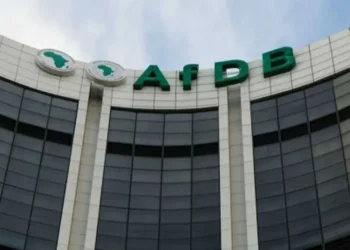Last week’s revocation of licences of 179 Microfinance, four Primary Mortgage banks and three Finance Houses by the Central Bank of Nigeria, (CBN) has continued to elicit mixed reactions from stakeholders and investing public.
While some commend the regulatory bank for the action, others say it was belated and that most of the affected financial institutions have been out of operations for over the last one year.
CBN had last week announced the revocation of the licenses of 179 microfinance banks as well as four primary mortgage banks and three finance companies in the country.
This was disclosed in the official gazette of the Federal Government, which was published on the website of the CBN on Tuesday.
The gazette said that the licences of the financial institutions were revoked because they “ceased to carry on, in Nigeria, the type of business for which their licences were issued for a continuous period of six months; failed to fulfil or comply with the conditions subject to which their licences were granted; or failed to comply with the obligations imposed upon them by the CBN in accordance with the provisions of Banks and Other Financial Institutions Act (BOFIA) 2020, Act No. 5.”
The CBN Governor, Godwin Emefiele, revoked the licences in the exercise of the powers conferred on the Central Bank of Nigeria under Section 12 of BOFIA 2020, Act No.5.
Further investigations by metrobusinessness, (MBN) showed that some of these institutions have ceased operations, some, for over two years, while some had absconded with funds of some unsuspecting depositors.
In fact, further investigations show that some operators had since converted buildings of the Finance Houses into other uses,while others were operating differently from the licenses obtained and without any supervision from the regulatory authorities.
While calling for the review of operating BOFIA Act that allows these institutions to operate for at least some months before close monitoring and supervision by the regulators, it was gathered that some smart operators had capitalised on these lapses to operate unhindered for some months and closed shops after duping their customers without leaving forwarding addresses.
“It takes another six months for CBN to embark on off-site supervision, even after commencement of operations and another six months afterwards. This is enough for much havoc to be done by smart operators. Although, we hear that CBN has a department responsible for non banking institutions, but I can tell you that these institutions are not closely monitored and supervised,” says a concerned analyst.
They contend that CBN had preoccupied itself with non core functions in recent times at the expense of its core responsibilities.
This, according to them may be responsible for the prevailing negative economic indicators as well as volatile foreign exchange market that is threatening the stability of the system.
Similarly, the nation’s undertaker, the bad bank, Nigeria Deposit Insurance Corporation (NDIC) was not spared, despite its recent assurances that depositors of the closed institutions would receive speedy payment of their insured sums.
They wonder how an organisaton that is still battling with dividend payments to customers of banks closed over the last two decades will suddenly come to assure the public of prompt payment of insured deposits in institutions that were recently closed.
NDIC Managing Director/Chief Executive, Bello Hassan was sad to have given the assurance in a statement following the revocation of the licences of the affected MFBs and PMBs by CBN.
“While we commend somehow, efforts of the CBN, in being able to tackle some of the challenges facing the banking sector, NDIC,on the other hand, seems to be lost out on all fronts as its operations are not very visible to the public and neither is their website a delighted place to go for any information,” says Friday Ameh, Lagos based analyst.
NDIC is obliged under the law to ensure that the insured deposit, which is the first claim is paid to depositors upon revocation of bank’s license by the CBN.
The maximum specified limits for the MFB and PMB sub-sectors are N200,000.00 and N500,000.00 per depositor per bank, respectively.
As the official liquidator, MBN gathered that disposition of the assets of the defunct institutions through sales of their assets as well as recovery of debts owed to them for payment of liquidation dividends on pro rata basis to the affected depositors with claims exceeding the maximum insured sums ofN200,000.00 for MFBs and N500,000.00 for PMBs have been herculean tasks for the corporation, with the resultant nightmares for the supposed beneficiaries.
The affected microfinance banks include; Atlas Microfinance Bank, Bluewhales Microfinance Bank, Everest Microfinance Bank, Igangan Microfinance Bank, Mainsail Microfinance Bank, Merit Microfinance Bank, Minna Microfinance Bank, Musharaka Microfinance Bank, Nopov Microfinance Bank, Ohon Microfinance Bank, and others.
Finance companies whose licences were revoked include HHL Invest & Trust Limited, TFS Finance Limited and Treasures & Trust Limited while the four primary mortgage banks whose licenses were revoked were Resort Savings & Loans, Safetrust Mortgage Bank, Adamawa Savings & Loans and Kogi Savings & Loans.
Meanwhile, the licences of another set of 47 microfinance banks were also revoked by the CBN, which brings the total of affected microfinance banks to 179.
ALSO READ:Nigerian Government Declares May 29 Public Holiday To Mark Beginning Of Tinubu’s Administration
The official gazette for the last batch stated that the banks have “Either remained inactive, insolvent, failed to render returns, closed shop, or ceased to carry on the type of banking business for which they were licensed for more than six months in contravention of the Banks and other Financial Institutions Act (BOFIA), 2020 and the Revised Regulatory and Supervisory Guidelines for Microfinance Banks in Nigeria.”
Some of the affected financial institutions include; Evangel Microfinance Bank, Dominion Microfinance Bank, Anya Microfinance Bank, Akwengwu Microfinance Bank, Fadama Farmers Microfinance Bank, Sal-Fol Microfinance Bank, Mautech Microfinance Bank, Wase Microfinance Bank, Smartmicro Microfinance Bank, Amba Microfinance Bank, Bridge House Microfinance Bank, Moneywell Microfinance Bank, Otukpo Microfinance Bank and others.












